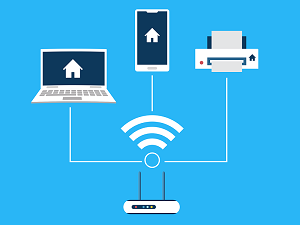 The Federal Communications Commission (FCC) gets a lot of bad press. Sometimes there are good reasons for that but much of the time there are not really any good reasons. As the nation’s lead spectrum regulator their primary job is to balance all needs and factors. They are supposed to arrive at decisions that do the best for the greatest number of people.
The Federal Communications Commission (FCC) gets a lot of bad press. Sometimes there are good reasons for that but much of the time there are not really any good reasons. As the nation’s lead spectrum regulator their primary job is to balance all needs and factors. They are supposed to arrive at decisions that do the best for the greatest number of people.
Recently mobile carriers led by AT&T have been lobbying hard against a plan by the FCC to allow the 6GHz band to be used without a license. This means that consumers will be able to use wireless routers designed to take advantage of that band in their homes without headache or hassle.
AT&Ts position has been that their company and the other carrier companies would prefer to have exclusive access to a portion of the 6GHz band in order to minimize the interference of their existing network of cell towers. The towers rely on the 6GHz band to help smartphones maintain their connection to the internet.
Based on the FCC’s research such risks are minimal. The agency did not feel a great need to cater to big business for what amounts to a few highly improbable edge cases.
Recently the US Court of Appeals for the District of Columbia ruled in support of the FCC’s position. AT&T and the other carriers had no immediate comment on the ruling, but this must be seen as a big win for US consumers. Ultimately it will mean faster wireless connection speeds which will translate to greater convenience for end users.
Kudos to the FCC for fighting the good fight and for the Court of Appeals for not trying to second guess the FCC and their expertise. Although there may be a few isolated cases where existing cellphone operations are nominally impacted, the weight of the evidence suggests that the Court made the right call here.
Used with permission from Article Aggregator
